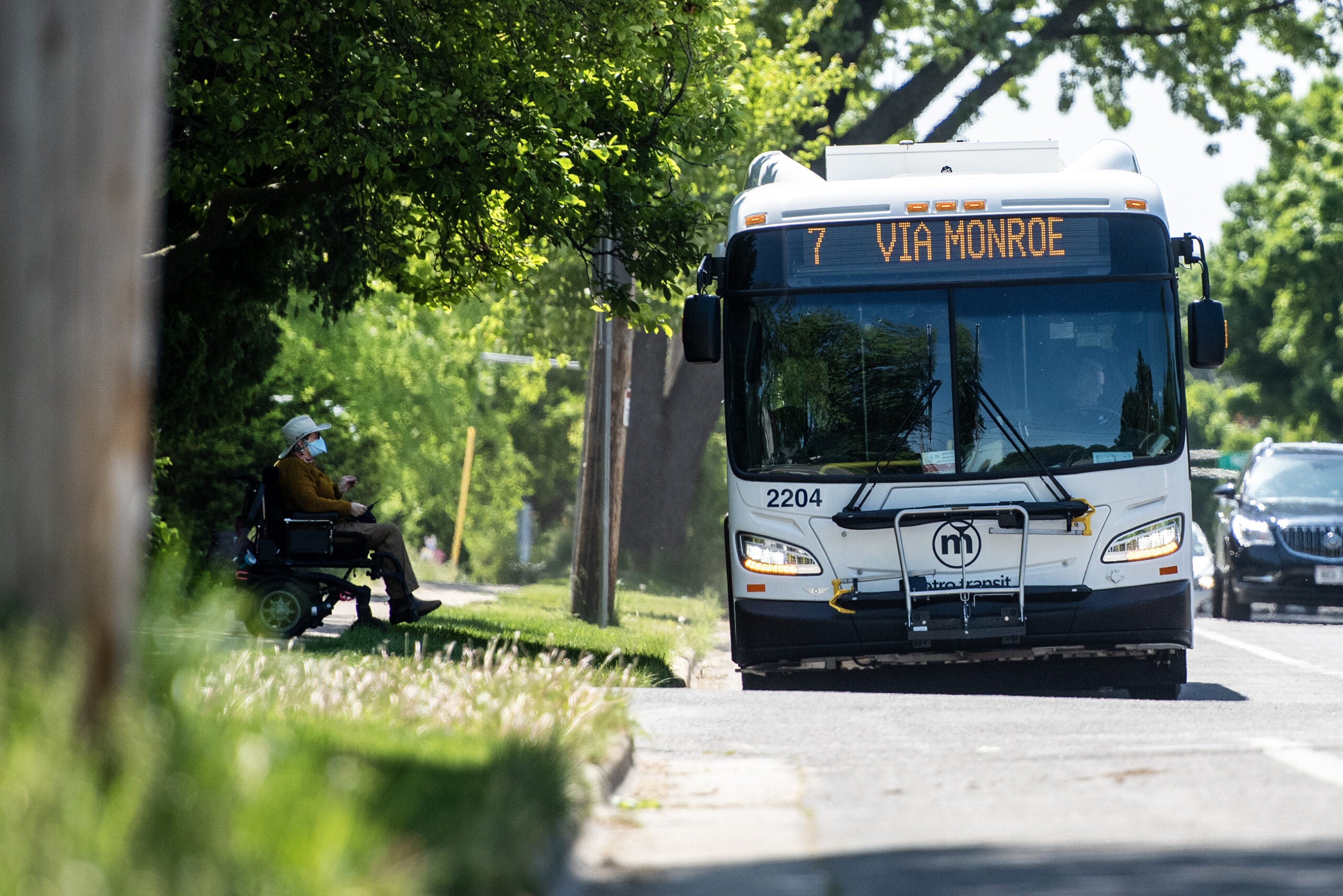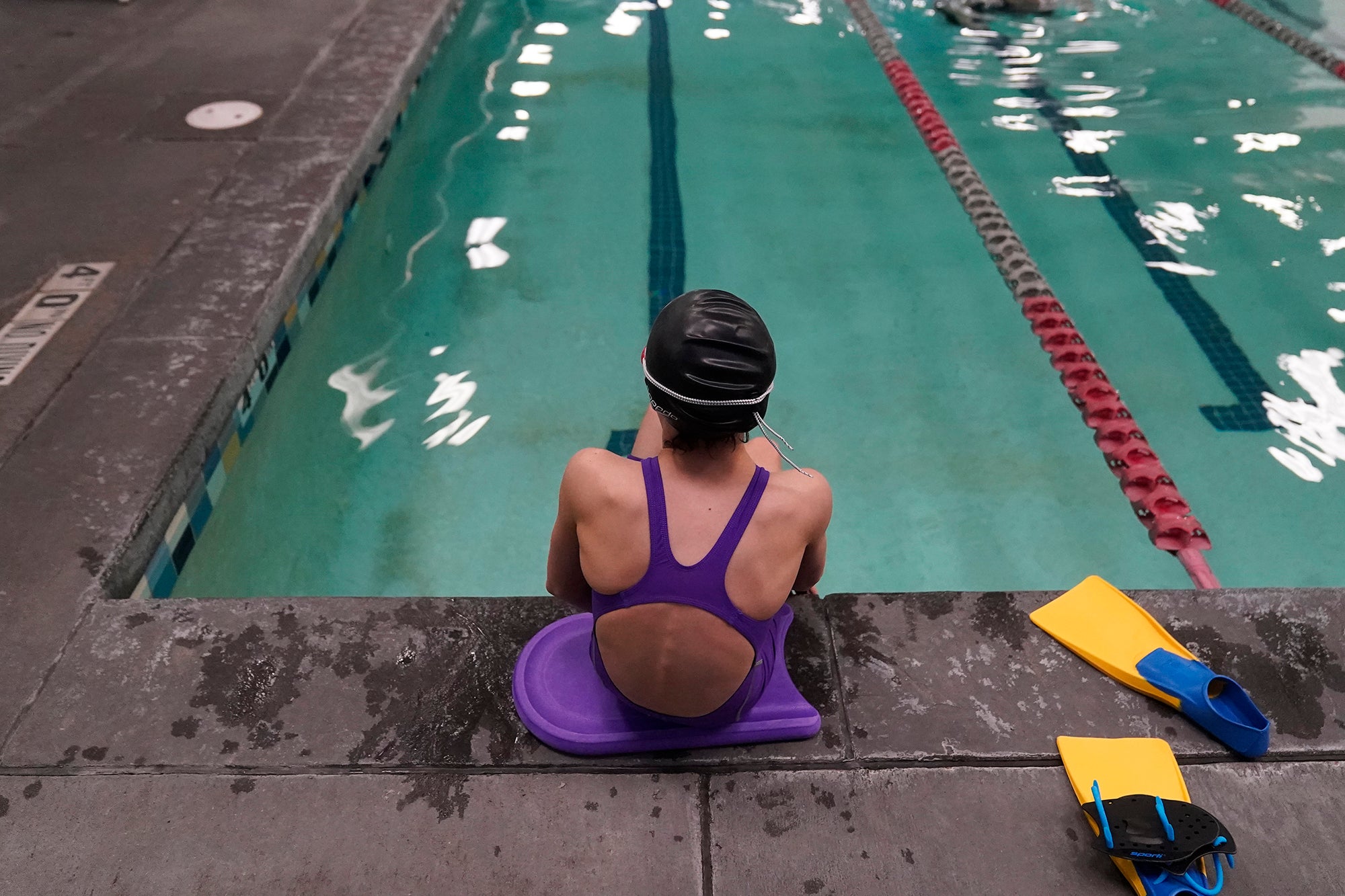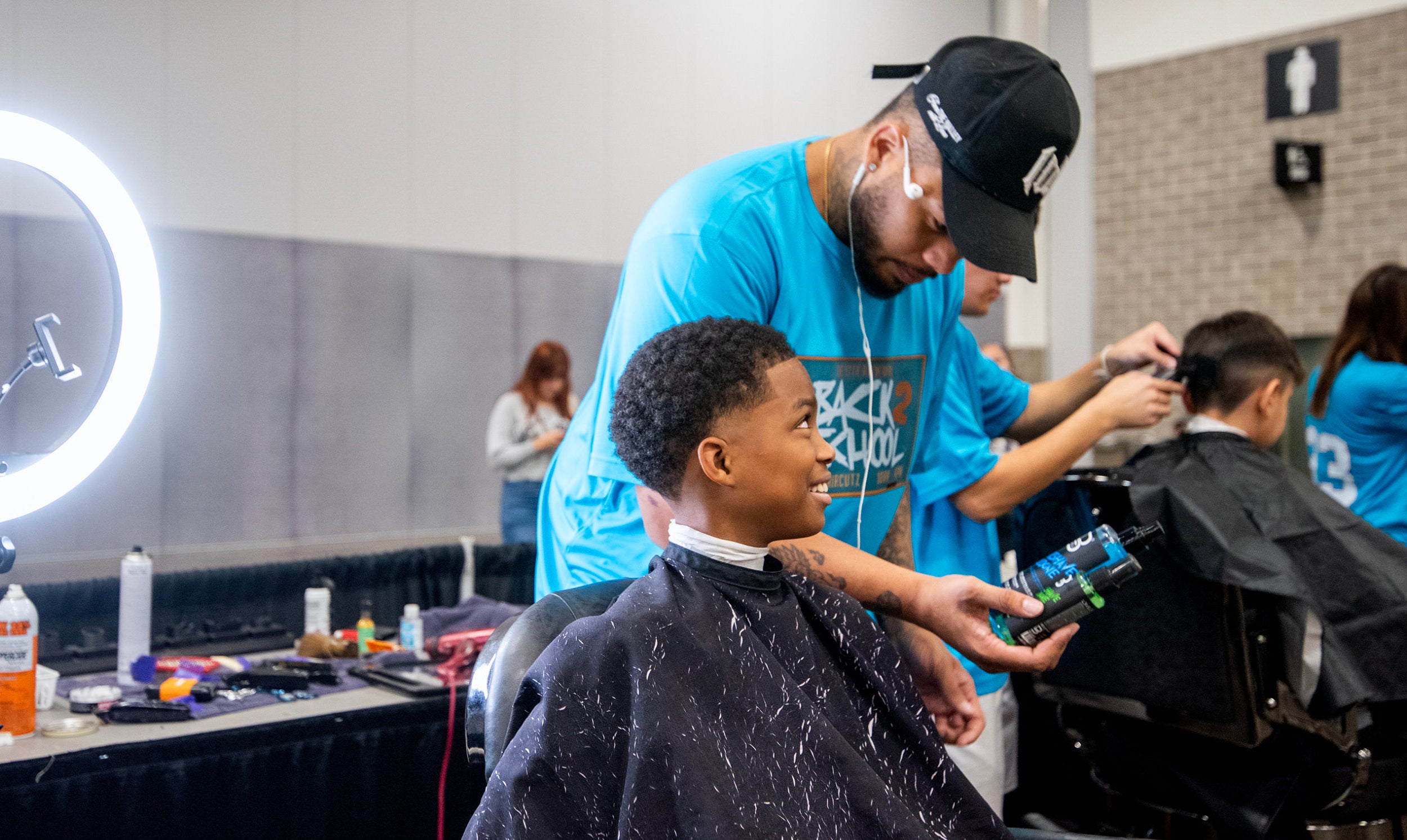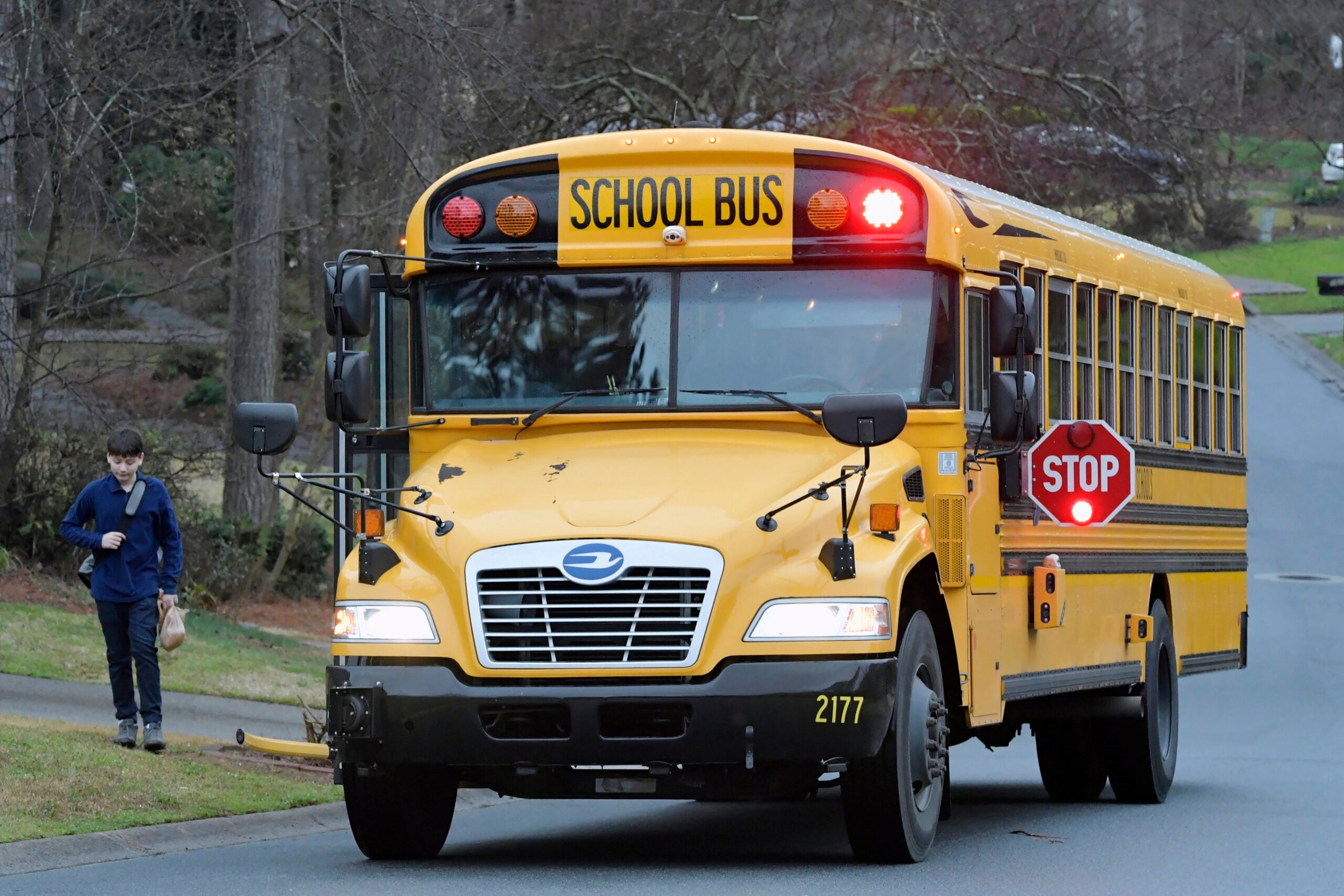Last summer, Sarah Gagnon’s 13-year-old daughter spent her days exploring Madison — all by herself.
She got a job at the farmers market, commuted to Shakespeare camp and visited her friends.
Gagnon said that independence was possible because of a partnership between Madison Metro and the school district to provide free bus passes to all middle and high school students in the city.
News with a little more humanity
WPR’s “Wisconsin Today” newsletter keeps you connected to the state you love without feeling overwhelmed. No paywall. No agenda. No corporate filter.
“She feels very independent,” Gagnon said of her daughter. “She’ll (ask), ‘Hey, can I stay at my friend’s house overnight? … I can just take the bus.’”
The program is in its third year and is expected to hand out up to 7,000 bus passes to students who want them.
Madison Mayor Satya Rhodes-Conway called it an “investment in our future.”
“By encouraging our young people to navigate their city via bus, we’ll be reducing emissions and improving air quality,” she said during an April news conference. “It’s an investment in our young people, preparing them today with vital community-readiness skills and giving them access to opportunity and to independence.”
The reduced emissions come from replacing trips that might be made in a family car with bus rides. The program began in 2021 and resulted in students taking 37,989 trips that summer. In 2022, that number jumped to 40,562 trips. Bus trips for students ages 5 to 17 typically cost $1.25.
Bus passes were made available in all school offices starting mid-May. Students can pick them up at the district’s summer school locations.
Gagnon works full time as a designer at the University of Wisconsin-Madison’s Field Day Lab, which creates educational games. She says without the free bus pass program, it’s likely her daughter would have spent the summer stuck at home.
“I think that this kind of thing is something that parents really need — a way to safely get their kids to places affordably during the summer — because there’s already a ton of pressure,” she said.
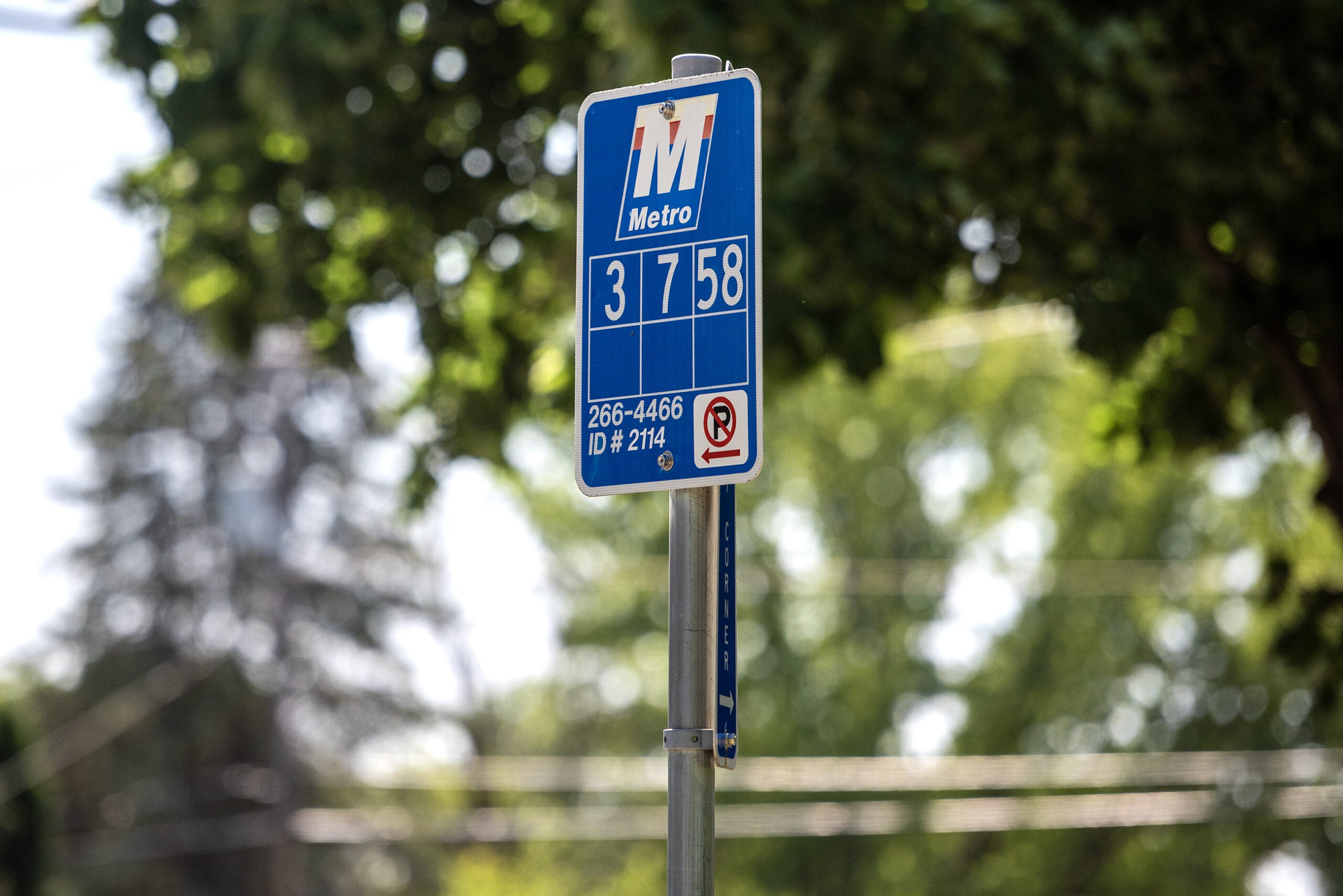
Madison school board president Ali Muldrow praised the partnership during the April news conference. She grew up in Madison, and talked about using the bus system to traverse the city.
“My passport to independence was my bus pass,” Muldrow said. “As a parent of three young kids here in Madison … I know what it means for families to see their young people be supported and empowered by public transportation.”
In a follow-up interview with Wisconsin Public Radio, Rhodes-Conway said the city recently broke ground on a new bus rapid transit system that will include fewer stops and shorter commutes for riders.
She said the city paid close attention to where schools were located when laying out the new bus routes.
“We did design the new Metro route system to address some of the previous inequities in the system and to increase access, particularly for low-income communities and communities of color … and so we’re going to see a pretty significant increase in access for folks, and that includes young people,” she said.
Madison isn’t the only Wisconsin city to provide free bus passes to students.
Green Bay Public School and Ashwaubenon School students are able to ride buses for free year round with a valid student ID, according to the Green Bay Metro website. Same goes for students enrolled in the Sheboygan Area School District and the Oshkosh Area School District.
Tips on preparing your kid to ride the bus alone
Gagnon said when she and her husband were preparing their daughter to ride the bus on her own, she wished they had a how-to guide. She offered the following tips for other guardians preparing their pre-teens for solo ridership:
- Study — or even draw — city maps with your child, pointing out key landmarks. Gagnon said kids don’t usually have a map in their head like many adults, so teaching them mapping skills before they head out on their own is key to making sure they end up in the right place.
- Ride the bus with your child and visit the various places they’ll be traveling to alone. Gagnon and her husband did that for about two weeks and slowly phased it out for another week or two. It built their daughter’s confidence in how to get on the bus, navigate the routes, request a stop and get off the bus.
- Make sure your child has a fully charged cellphone. Gagnon has her daughter text her when she gets on the bus, that way she knows when her daughter should arrive at her destination. She also asks her daughter to text her when she gets where she’s going. Having a cellphone also lets her daughter check Google Maps, and call her parents if she needs help with anything.
- Teach your child how to ask the driver, or other commuters, questions if they need help. Guardians often tell their kids not to talk to strangers, but in this case, it’s helpful to know how to approach people if the child confused about a stop or a bus route.
- Bonus: If your city bus has a bike rack, show your kids how to use it. Gagnon quipped that this is a great skill for all bus riders to learn, as a bike can be a great way to zip between shorter distances once you’ve reached your main destination.
Wisconsin Public Radio, © Copyright 2026, Board of Regents of the University of Wisconsin System and Wisconsin Educational Communications Board.

